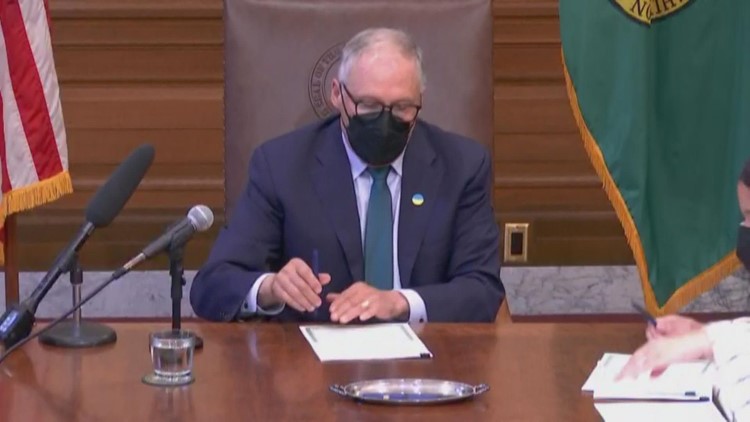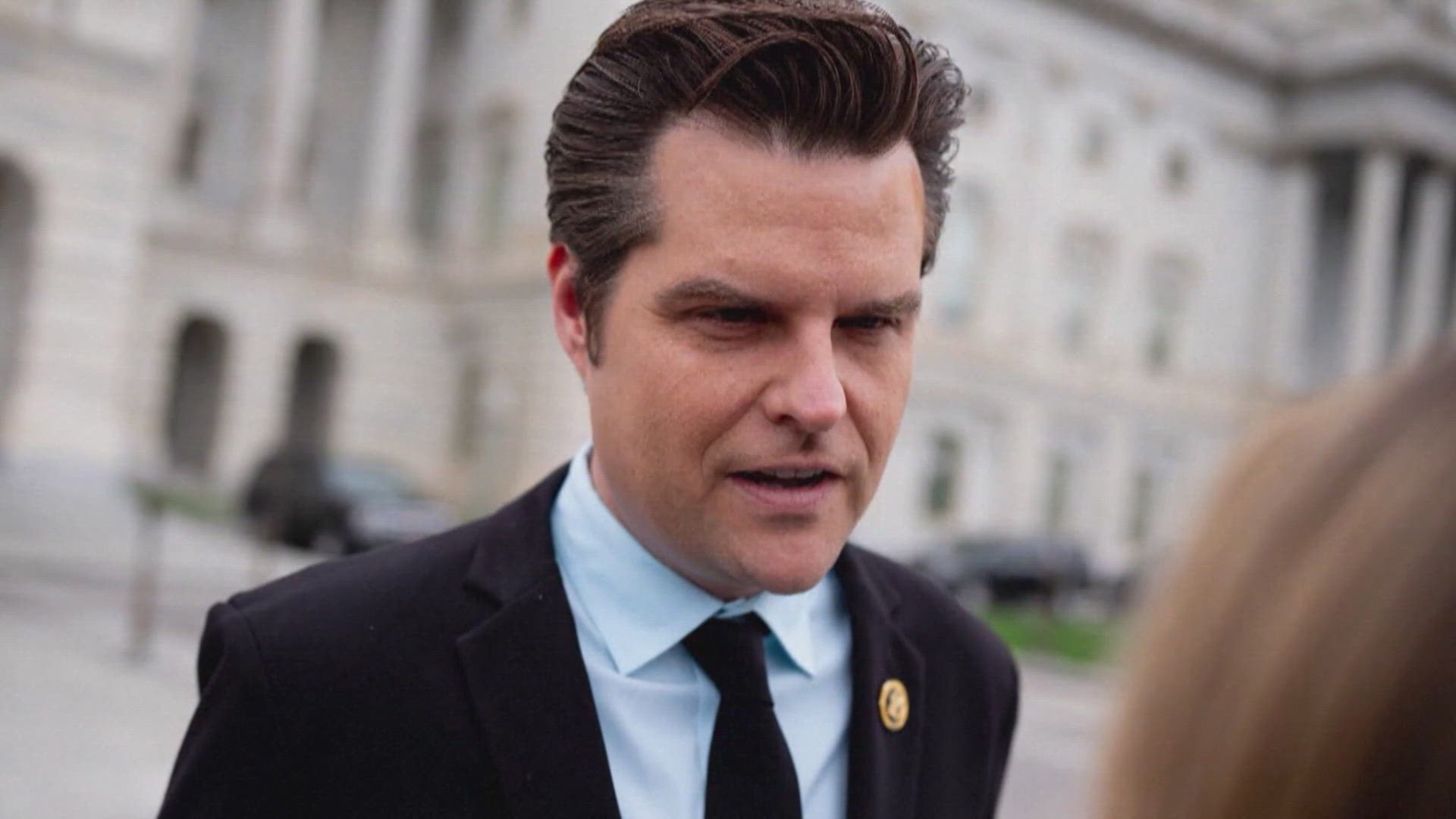OLYMPIA, Wash — A $64.1 billion supplemental state budget that spends on statewide programs ranging from homelessness and behavioral health to the ongoing COVID-19 response was signed Thursday by Washington Gov. Jay Inslee.
The supplemental plan builds off of the $59 billion, two-year spending plan adopted by the Legislature last year, and benefited from the significant influx of revenues the state has seen over the past year. Additionally, lawmakers used more than $1 billion in remaining pandemic-related federal relief funds in the budget.
More than $800 million is allocated for homelessness and housing, including $50 million to transition unhoused people from unsanctioned camps to housing.
Inslee specifically called out the efforts on addressing homelessness, saying that lawmakers “gave us relief that is big, that is bold, and that is fast.”
While there are no general tax increases in the plan, there are also no across-the-board tax cuts, something Republicans had argued for throughout the legislative session that ended March 10.
A small business tax credit was included that would affect about 125,000 small businesses in the state, and was among the bills signed by Inslee Thursday.
Starting in January, businesses making less than $125,000 a year would pay no state business taxes, and those making up to $250,000 a year, business taxes will be cut in half.
The supplemental operating budget also spends state or federal money on things like adding more social supports like nurses and counselors for students, increasing rates to vendors providing services to people with developmental disabilities or long-term care needs and shoring up the state’s paid family leave program, which officials warned was nearing a deficit.
It also allots funding for raises for state workers. According to the Office of Financial Management, about 63,800 general government employees will get a 3.25% general wage increase, about 6,700 state corrections workers will get a 4% general wage increase and about 1,200 state patrol officers will get a 10% general wage increase. The last general wage increase for represented employees was July 1, 2020.
The operating budget also transfers more than $2 billion to the nearly $17 billion, 16-year transportation revenue package that Inslee signed last week. The plan leaves about $3 billion in total reserves.
Inslee had several full or partial vetoes of bills, including a section of a bill that would have expanded the state’s existing warehouse sales and use tax to include smaller warehouses of at least 100,000 square feet. In his veto notice, Inslee said that while he understood the importance of manufacturing and warehousing to rural economies, he said the tax incentives in the bill were overly broad.
Inslee on Thursday also signed a $1.5 billion state construction budget that spends on areas ranging from housing, homelessness, behavioral health facilities, and seismic upgrades at public schools.



